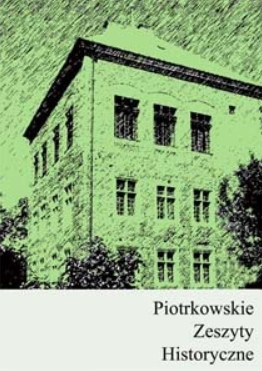Działalność samokształceniowa i oświatowa w ruchu zetowym w latach zaborów i I wojny światowej
Autodidactic and educational activities in the „Zet” movement during the partition period and the First World War
Author(s): Przemysław WaingertnerSubject(s): Civil Society, Political history, Social history, History of Education, 19th Century, Pre-WW I & WW I (1900 -1919)
Published by: Instytut Historii UJK - Filia w Piotrkowie Trybunalskim
Keywords: Polish youth organizations; World War I; education in Polish lands in the 20th Century;
Summary/Abstract: In the years 1886-1914 the conspiratorial Polish Youth Association “Zet” (ZMP) expanded its structures and activities to the Polish lands of all three partitions and to academic centers and clusters of Polish youth in Russia and Western Europe. In doing so, “Zet” activists carried out organizational work (covering Polish lands under partitions, as well as abroad) which aimed to create, inspire or become involved in the activities of numerous academic, school, working-class and peasant organizations. Members of the ZMP also sought to set up, programmatically inspire or penetrate the organizations of the “adult” society – cultural and educational associations and political parties. The activities of “Zet” were guided by the slogans of independence and patriotism and social program based on the idea of democracy, self-government, civil rights, national and religious tolerance and social justice. The area to which young conspirators attached great importance was selfeducation and education among academic and school youth, the young generation of workers and peasants and in the “adult” society. These slogans were promoted by the movement in the press and realized by undertaking numerous autodidactic and educational initiatives. These actions characterized the activity of “Zet” members not only during the partition period, but also during the years of World War I. By participating in the armed struggle for independence and promoting a certain model of socio-political governance in the future Polish state, young conspirators did not lose sight of the need to professionally educate and prepare young people to prospectively adopt the responsibility for Poland, which was rebuilt after years of partitions and war time.
Journal: Piotrkowskie Zeszyty Historyczne
- Issue Year: 21/2020
- Issue No: 1
- Page Range: 45-64
- Page Count: 20
- Language: Polish

